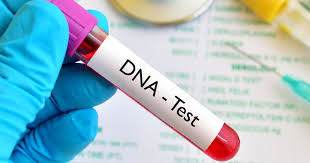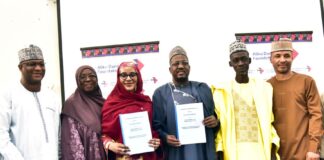Smart DNA Statistics On Nigerian Biological Fathers Misleading, Says British-Nigerian Data Security Expert
The proportion of Northerners emigrating abroad is less than 0.5%. Except for my time in university, I have encountered very few individuals from the Hausa community residing in the UK, unlike other individuals from the Southern region of Nigeria
A British-Nigerian based in the in United Kingdom, Omikunle Olanre, has faulted the report on DNA tests among Nigerians issued by Smart DNA Nigeria, a leading DNA testing centre based in Lagos, Nigeria, saying various media reports on DNA in Nigeria are misleading.
Smart DNA had recently issued a report which indicates that four out of Nigerian men are not the biological fathers of their children. The research said to have been carried out by the diagnostic hub showed that 27 percent of paternity tests yielded negative results.
According to the Smart DNA research, carried out between July 2023 and June 2024, it was discovered that 88.2 percent of test requests were initiated by men, with only 11.8 percent by women. It also stated that In terms of age groups, men aged 41 and older were more likely to request tests, accounting for 45.6 percent compared to 37 percent for those aged 31 to 40, which further pointed out that this may be attributed to factors such as economic stability or heightened concerns about paternity in older men.
The report noted that ethnically, the majority of tests were conducted among the Yoruba (53 percent), followed by the Igbo (31.3 percent), with the Hausa representing only 1.2 percent. Most tests (85.9 percent) were attributed to achieving ‘peace of mind’, highlighting the personal rather than legal motivations behind DNA testing in Nigeria.
Elizabeth Digia, operations manager at Smart DNA, highlighted that these findings offer a unique window into the changing dynamics of Nigerian families and society adding that the high rate of negative paternity tests and the surge in immigration-related testing are particularly noteworthy. They reflect broader societal trends that merit further discussion and research.
The study also revealed that paternity uncertainty is on the rise, and crucial immigration documentation is driving a surge in DNA testing, growing more than any other test type.
However, in his review of the Smart DNA research report, Olanre, a UK-based data security expert, maintained that Statistical data indicates that approximately 99% of individuals who engage in DNA test activities do so for visa-related reasons adding that “this demographic primarily consists of individuals from the middle class, with the remaining 1% being from the upper class.”
He said, “Furthermore, when considering the lower-class population, it is observed that 70% or more, including individuals from the Northern region, fall below the middle-class category. “Surprisingly, the proportion of Northerners emigrating abroad is less than 0.5%.
“Except for my time in university, I have encountered very few individuals from the Hausa community residing in the UK, unlike individuals from the Southern region of Nigeria. Specifically, the only female acquaintance I have from the Hausa community is from Jos and identifies as Christian.”
Olanre stated further, “Based on this, it seems plausible to posit that the aforementioned statistical data is predominantly derived from Southerners, thus potentially inaccurately representing the entire population.
“Consequently, as someone who dabbles in statistics, I am inclined to conclude that the assertion that one in four individuals is not a biological father may be a misrepresentation of our demographic clusters.”
Similarly, Otunba Victor Ojelabi, a Nigerian-based media practitioner also chided the Smart DNA establishment, expressing his doubts on the outcome of its research on Nigerian men not being biological fathers of their children. He said the claim portends danger to a peaceful coexistence in the community. “I’m beginning to doubt this stuff. Looks like DNA centres are trying their hands on indirect marketing.”
Ojelabi added that “A proactive government should investigate these claims. If not, the home is in danger and this is dangerous for a peaceful coexistence in the community and the nation as a whole.” …Continue Reading















